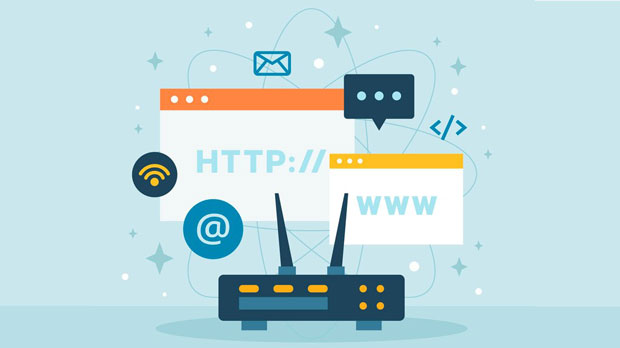In the ever-evolving world of web scraping, the selection of the right proxy service is crucial for businesses that need to extract large volumes of data. residential proxies have gained significant popularity because they offer high anonymity and make it harder for websites to detect scraping activity. Among the top contenders in this space are Oxylabs and PYPROXY. Both providers offer residential proxies that claim to excel in handling HTTPS traffic. However, the real-world performance of these services can differ in terms of speed, reliability, and scalability. This article delves into a comparative analysis of Oxylabs andPyProxy in the context of HTTPS scraping, highlighting key factors such as success rates, latency, and use case scenarios. Overview of Residential Proxies for HTTPS ScrapingResidential proxies are IP addresses that belong to real devices, such as laptops or smartphones, making them highly effective at bypassing geo-blocks and CAPTCHA mechanisms. These proxies are essential for web scraping, especially for sites that have strict anti-scraping measures. HTTPS scraping, in particular, requires proxies that not only conceal the user's identity but also ensure that the data transfer is secure and efficient.When it comes to residential proxies, Oxylabs andPyProxy are two providers that cater to high-demand scenarios, including market research, price comparison, and competitive intelligence. Both services boast robust proxy networks, but their approach to managing and delivering residential IPs varies. The focus here is to analyze their performance specifically for HTTPS scraping, which poses unique challenges due to encryption protocols and high traffic volumes.Performance Metrics: Speed and ReliabilityOne of the most critical aspects when choosing a proxy provider for HTTPS scraping is speed. The latency introduced by the proxy can significantly impact the overall efficiency of the scraping process. In this regard,PyProxy has a reputation for offering low-latency residential proxies, which is a key benefit for users who require fast data extraction. Their global proxy pool is known for its high availability, and they provide tools that allow users to rotate IPs seamlessly, ensuring uninterrupted connections.On the other hand, Oxylabs, while offering a competitive proxy network, may not match the speed and consistency thatPyProxy offers, particularly during peak usage times. Users of Oxylabs may experience higher latency due to limited infrastructure in certain regions. This can lead to slower scraping speeds, which may be a deal-breaker for enterprises that rely on quick data collection.Success Rates in Bypassing Anti-Scraping MeasuresSuccess rates in bypassing anti-scraping mechanisms are another crucial metric when evaluating residential proxies. Websites today use sophisticated measures, such as CAPTCHA, IP blocking, and rate limiting, to deter automated data extraction. In this regard,PyProxy excels in offering a diverse range of residential IPs from various geographic locations, which makes it easier to bypass IP-based restrictions. Their technology is adept at rotating IPs efficiently, allowing users to simulate organic traffic and evade detection.Oxylabs, while providing good proxy coverage, may struggle in some cases to maintain the same level of success rates asPyProxy. Although it has a solid reputation for serving diverse use cases, Oxylabs's smaller proxy pool can sometimes lead to higher detection rates, especially on websites that have advanced anti-scraping technology.Scalability and Use CasesScalability is another area wherePyProxy outshines Oxylabs. Large-scale scraping operations often require access to thousands of residential IPs for concurrent requests.PyProxy provides an extensive network that supports such large-scale scraping tasks, making it an ideal choice for enterprises with significant scraping needs. The ability to scale seamlessly is important for businesses that require continuous access to data without disruptions.In contrast, Oxylabs is more suited to smaller-scale operations or projects where fewer IP addresses are needed. While it can handle medium-sized scraping tasks well, it may not be as effective for enterprise-level projects where high volumes of data need to be extracted simultaneously.Security and Privacy FeaturesFor HTTPS scraping, security and privacy are non-negotiable. Both Oxylabs andPyProxy offer secure encryption for data transmission, which is essential when handling sensitive information. However,PyProxy stands out with its advanced security features, such as real-time IP rotation and customizable proxy settings that allow users to choose the security protocols that best suit their needs. This flexibility ensures that users can secure their connections while scraping.Oxylabs, although it offers encrypted connections, lacks the same level of customization and security features asPyProxy. Users may find it more challenging to fine-tune security settings, which could pose a risk in high-stakes environments where data protection is paramount.Customer Support and DocumentationEffective customer support can make or break the experience with a proxy provider.PyProxy provides 24/7 customer support through various channels, including live chat, email, and dedicated account managers. Their support team is knowledgeable and can assist with complex issues related to HTTPS scraping, such as IP rotation or troubleshooting connection issues.Oxylabs, while offering customer support, may not match the level of service provided byPyProxy. The response times can be slower, and users may find it more difficult to get assistance during critical scraping tasks. This could lead to frustrations for users who rely on timely support to resolve issues quickly.Pricing ConsiderationsPricing is always a key consideration when selecting a proxy provider.PyProxy tends to be on the higher end of the pricing spectrum, but the premium cost is justified by its expansive network, advanced features, and reliable customer service. For large businesses and enterprises, the cost is often deemed worth the value.Oxylabs, on the other hand, offers more affordable pricing plans, making it an attractive option for small to medium-sized businesses or individual users who are just getting started with HTTPS scraping. While the lower price point may be appealing, users must weigh this against the potential drawbacks in speed, scalability, and success rates.Conclusion: Which is Better for HTTPS Scraping?In conclusion, both Oxylabs andPyProxy have their strengths and weaknesses when it comes to HTTPS residential proxy performance.PyProxy is the clear winner for large-scale operations, offering superior speed, reliability, success rates, and security features. It is best suited for enterprises or businesses that require high-performance proxies and scalable solutions.Oxylabs, on the other hand, is a solid choice for smaller-scale projects or those on a budget. While it may not offer the same level of performance asPyProxy, it still provides a reliable service for less demanding scraping tasks. The decision between these two providers ultimately depends on the specific needs of the user, including the scale of the scraping operation, budget, and the level of technical support required.
Sep 24, 2025



































































